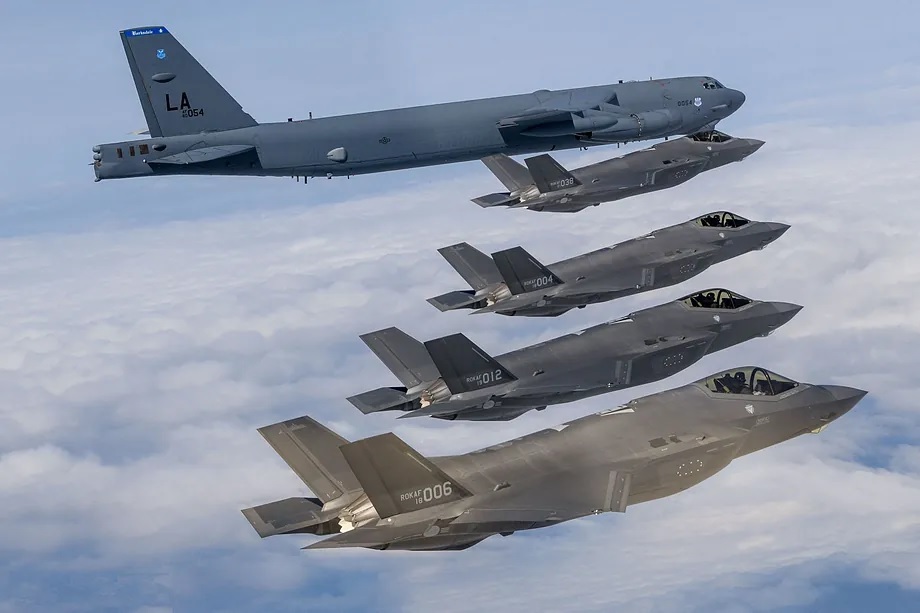The armies of China and Russia took their fighter jets for a spin over the Sea of Japan on Friday for a joint aerial patrol. It is the ninth military exercise of this kind they have carried out hand in hand since their leaders, Xi Jinping and Vladimir Putin, strengthened what they dubbed an "unlimited" strategic partnership in February 2022 during a visit by the Russian leader to Beijing, shortly before the invasion of Ukraine.
The novelty of this joint patrol, unlike other maneuvers, is that six Russian and five Chinese fighter jets have intruded into South Korea's air defense identification zone (ADIZ). This is a buffer area that, in this case, serves Seoul to prevent any threats to its security, requiring any aircraft entering to identify themselves.
The Russian and Chinese aircraft entered the ADIZ without prior notification. Therefore, the response from the South Korean Air Force was to carry out an "emergency deployment" for their fighter jets to closely monitor these unusual maneuvers.
Last July, Chinese and Russian fighter jets conducted another joint aerial patrol using strategic bombers with nuclear capabilities near Alaska in the North Pacific and the Arctic, prompting the United States and Canada to deploy their own fighter jets to monitor these exercises.
In Seoul, the intrusion into their ADIZ on Friday can be seen as a provocation that is part of a deterrence strategy by the Putin regime after the South Korean government mentioned this month that it is considering sending weapons to Ukraine in response to North Korean troops being deployed in Russia.
A few days ago, Russian Deputy Foreign Minister Andrey Rudenko stated in an interview that his country will take all necessary measures if South Korea provides lethal weapons to Kiev. "Seoul must realize that the potential use of South Korean weapons to kill Russian citizens will completely destroy the relationship between our countries," Rudenko said.
There is much debate in Seoul among lawmakers and the general public about whether to break away from their traditional pacifist policy of not supplying lethal weapons to a country at war with another.
"If the North Korean military gains experience in modern warfare, it could be a fatal problem for our national security. We need to change how we provide assistance to Ukraine, and this will depend on the extent of the North Korean military's involvement in the war. We do not rule out military support," recently stated South Korean President Yoon Suk Yeol.
South Korea, the ninth largest arms exporter in the world - with some of the largest artillery projectile arsenals in the world - has supported Ukraine from the beginning with the delivery of humanitarian aid and has joined Western sanctions against Moscow.
However, Seoul had so far avoided a serious discussion about the real possibility of breaking away from its traditional pacifist policy. The government fears that if it does so, Putin may respond by providing greater military support to Pyongyang, with weapons and advanced technology that the Kim Jong-un regime greatly demands for its ballistic missile program.
